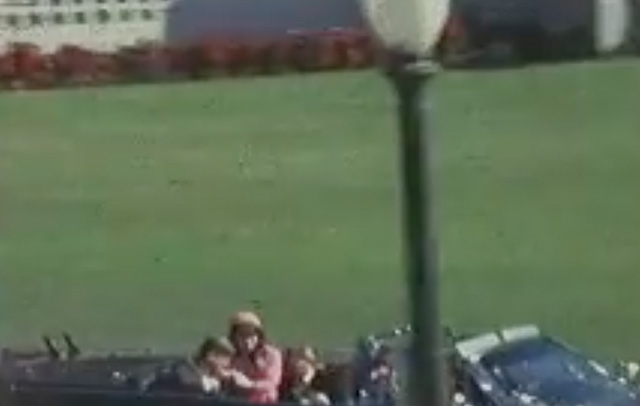The News Hit and Time Froze
Awakening to an overcast, chilly upstate New York autumn morning, I dressed, ate breakfast and was dropped off at my old red brick intermediate school. The day started as more of the norm: announcements, recess, math , lunch. Suddenly, in a flash, everything changed.
We were briskly removed from class and sent back to our homerooms. We then were herded like lambs to the assembly room .The teachers were silent, gave no directions, no small talk, just cold silence. Once there, we were seemingly abandoned for what felt like hours. Then our teachers, wearing pale faces and somber looks, slowly guided all of us into a large, dark meeting room. Except for a small black and white television in the comer blasting words and noise, the room was gray and silent.
They seated all of us on the floor in front of the TV and along the walls. Teachers, some parents and unknown figures stood like grey statues. Looking up at the screen, I saw news icon Walter Cronkite speaking from his CBS news desk. Everyone was hushed, ignorantly fearful and wondering what was going on. As we watched Cronkite was handed a note. He paused, removed his glasses, put them back on and proceeded to speak. “At 1 o’clock Dallas time, President John Fitzgerald Kennedy was pronounced dead.”
He was killed by an assassin’s bullet. Cronkite continued on about then Vice President Lyndon B. Johnson — and the rest just blurred on. There were no explanations, no consoling, just quiet sobbing in disbelief. Was this really happening or was it a bad dream? We continued to listen for what seemed like a lifetime, some teachers were crying and my fellow students’ tears abounded.
In those times, there were no cell phones, no texting, no calls home, no fast school pick-ups, no early buses. We were all ushered out into the cold, bleak day and sent home on our own. My almost 1.5-mile solemn journey seemed surreal. The overcast day was silent except for the crunching of leaves under my feet. The 25-minute walk dragged on even though I walked at as fast a pace as I could up the steep hill. Streets were empty, the silence deafening.
When I reached the top of my street, I broke into a run towards my house. I pushed open our heavy front door and shouted, “Mom, Mom!” No answer. “Mom!” I couldn’t see her. Worried, I looked everywhere until I witnessed a sight that changed my naive world forever. There was my rock, my safe harbor, always cheerful mother, sitting on our back porch with her face in her hands, sobbing.
She jumped up, grabbed me and hugged me tight. I can’t remember if any words were spoken other than, “I’m sorry, Mom, I’m so sorry.” At that moment, in each other’s arms, we shared the grief — the grief of a nation, of a family and of the world. Time seemed to stop, frozen, and the end came to the innocence of a country and of a generation. The rest, unfortunately, is history.
When I graduated from Rensselaer Polytechnic Institute in Troy, N.Y. in 1976, Walter Cronkite handed me my diploma and I shook his hand. I will memorialize his influence on my life in my book “The Rhythm of a Broken Heart.”


